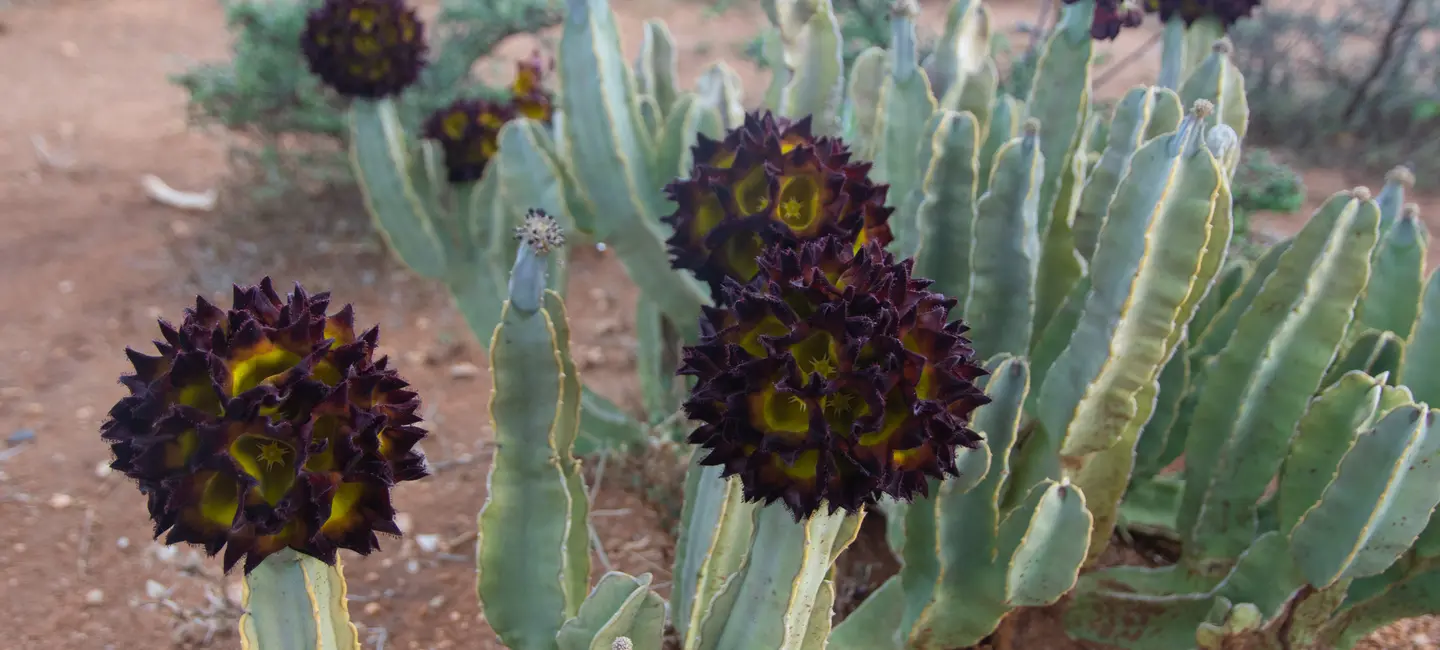
Caralluma (Caralluma fimbriata) is an edible cactus that grows in India. It's used in preserves such as chutneys and also as medicine.
Caralluma contains antioxidants and chemicals that might reduce appetite.
People use caralluma for obesity, anxiety, an inherited disorder called Prader-Willi syndrome (PWS), and many other conditions, but there is no good scientific evidence to support these uses.
Don't confuse caralluma with cereus, hoodia, or prickly pear cactus. These are not the same.
Is It Effective?
NatMed Pro rates effectiveness based on scientific evidence according to the following scale: Effective, Likely Effective, Possibly Effective, Possibly Ineffective, Likely Ineffective, Ineffective, and Insufficient Evidence to Rate.
- Obesity. Taking caralluma extract by mouth seems to improve weight loss in people with obesity.
There is interest in using caralluma for a number of other purposes, but there isn't enough reliable information to say whether it might be helpful.
Is it Safe?
When taken by mouth: Caralluma is commonly consumed in food. Caralluma extract is possibly safe when used in doses no greater than 1000 mg daily for up to 12 weeks. It's usually well-tolerated. Side effects might include constipation and gas.
Special Precautions & Warnings:
Pregnancy and breast-feeding: There isn't enough reliable information to know if caralluma is safe to use when pregnant or breast-feeding. Stay on the safe side and avoid use.
It is not known if Caralluma interacts with any medicines. Before taking Caralluma, talk with your healthcare professional if you take any medications.
There are no known interactions with herbs and supplements.
There are no known interactions with foods.
Caralluma extract has most often been used by adults in doses of 500 mg by mouth twice daily for up to 12 weeks. Speak with a healthcare provider to find out what dose might be best for a specific condition.
C. Fimbriate, Caraluma, Caralluma ascendens, Caralluma Cactus, Caralluma Extract, Caralluma fimbriata, Caralluma Fimbriata Extract, Caraluma Pregnane Glycosides, Extrait de Caralluma, Extrait de Caralluma Fimbriata, Kallimudayan, Karallamu, Kullee Mooliyan, Makad Shenguli, Ranshabar, Shindala Makadi, Wild Succulent Cactus, Yugmaphallottama.
Information on this website is for informational use only and is not intended to replace professional medical advice, diagnosis, or treatment. While evidence-based, it is not guaranteed to be error-free and is not intended to meet any particular user’s needs or requirements or to cover all possible uses, safety concerns, interactions, outcomes, or adverse effects. Always check with your doctor or other medical professional before making healthcare decisions (including taking any medication) and do not delay or disregard seeking medical advice or treatment based on any information displayed on this website.
© TRC Healthcare 2024. All rights reserved. Use and/or distribution is permitted only pursuant to a valid license or other permission from TRC Healthcare.
